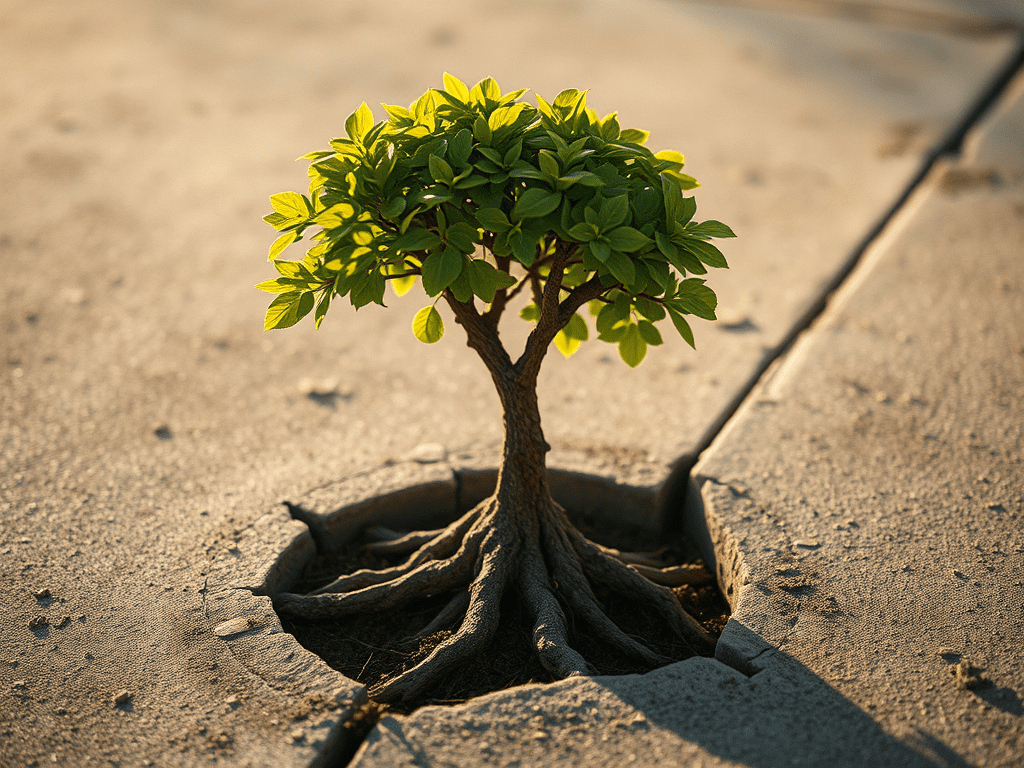Life is filled with inevitable challenges and setbacks. From external stressors such as job loss, financial strain, or relationship issues to internal struggles such as self-doubt, anxiety, or depression, we all face moments of adversity. While we cannot control the hardships of life, we can work to intentionally build our mental resilience as a means to help us cope with these and all situations more effectively.
Let’s discuss strategies that helps us build mental resilience and cultivate a strong, adaptable mind.
What is Mental Resilience?
Mental resilience refers to our ability to bounce back from adversity, cope with stress, and adapt to change.
It involves possessing a combination of emotional, cognitive, and behavioral skills that enable us to navigate life’s challenges with greater ease and effectiveness.
7 Strategies to Improve Mental Resilience
Some of us are born with an innate calm, an ability to effectively manage or compartmentalize stress and also maintain our serenity in the face of adverse events and challenges. But most of us can use all the help we can get to build our mental resilience. So, let’s review 7 strategies to help cultivate a strong and resilient mind.
1. Practice Mindfulness
Mindfulness involves being present in the moment without judgments or distractions.
Practicing mindfulness can help you tune in to your inner experiences, stay grounded, and improve your ability to regulate your emotions, even in stressful situations.
2. Engage in Self-Care to Build Mental Resilience
Self-care involves prioritizing your physical, mental, and emotional well-being by engaging in practices that nurture and restore you.
This could include getting enough sleep, eating nourishing meals, practicing yoga or meditation, taking a walk, or engaging in creative hobbies.
3. Build a Support System
Cultivating a community of supportive people, whether it’s family, friends, or a mental health professional, can help you feel more resilient and better equipped to handle stressors.

4. Develop Problem-Solving Skills
Developing problem-solving skills can help you approach challenges with more confidence and creativity.
Identify the problem, brainstorm potential solutions, evaluate them, and take action toward implementing the best option.
Honing our decision-making abilities can also help us to sharpen our problem-solving skills. To learn more about how to improve decision-making, check out: How to Make Great Decisions.
5. Challenge Negative Thoughts to Build Mental Resilience
Negative thoughts and self-doubt can hinder mental resilience.
Practice challenging and reframing negative self-talk by replacing them with positive affirmations, realistic perspectives, and self-compassion.
Third-person affirmations have been shown to be particularly effective in nurturing a more positive mindset and an ability to overcome negative thought patterns.
6. Develop Flexibility
Being rigid in our thoughts and behaviors can make us more susceptible to stress and challenge.
Practicing flexibility, such as being open to new ideas or different perspectives, can make us more adaptable and better equipped to handle change.
7. Embrace a Growth Mindset to Build Mental Resilience
Adopting a growth mindset means recognizing that our abilities and skills can be developed and improved over time.
This can help us approach challenges as opportunities for growth and learning, rather than insurmountable obstacles.
Building Mental Resilience
Building mental resilience is a process that involves developing emotional, cognitive, and behavioral skills that enable us to navigate life’s challenges with more confidence and ease.
Resilience is not about avoiding difficult times, but about facing them with strength and adaptability.
Let these strategies guide you on your journey of building mental resilience, emotional wellness and navigating life’s challenges with greater ease and confidence.
Thank you as always for reading.
If you haven’t yet subscribed, please visit KindCompassCoach and enter your email address so you never miss a post.
As Amazon Associates, we may receive a small commission (at no cost to you) for items purchased through links in this post.

Joan Senio is the founder of KindCompassCoach. Joan’s career includes clinical healthcare plus 20+ years as an executive in a nationwide health care system and 15 years as a consultant. The common threads throughout Joan’s personal and professional life are a commitment to non-profit organizations, mental health, compassionate coaching, professional development and servant leadership. Joan has had the privilege of mentoring early and mid-career professionals as well as current and future executives and leaders. She is a member of the International Organization of Life Coaches, serves as a thought-leader for KuelLife.com and is also a regular contributor to PsychReg and Sixty and Me. You can read more about Joan here: Joan Senio.




2 Responses
I think working on and building mental resilience is sometimes overlooked, yet it is so often what we need to get us through life. These strategies are great and will definitely help with giving our hardiness a boost!
I agree, Molly. We often don’t prioritize our own mental resilience, but when we are intentional about building it, we feel the impact across all aspects of our well-being. Thanks so much for commenting.